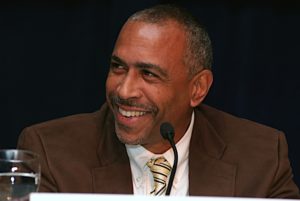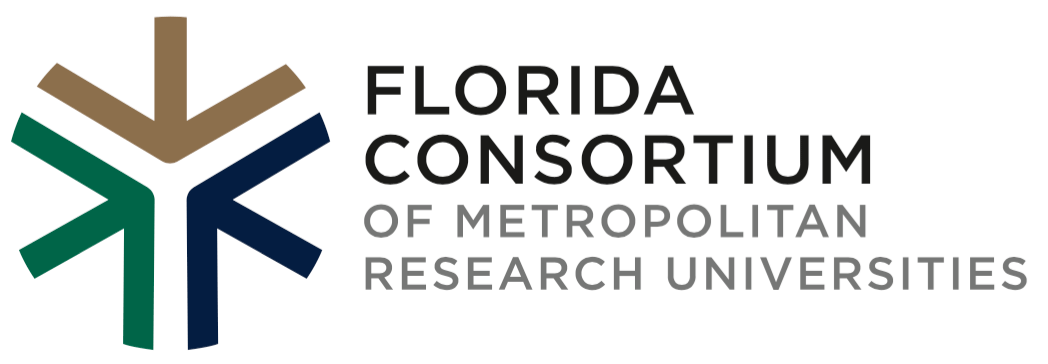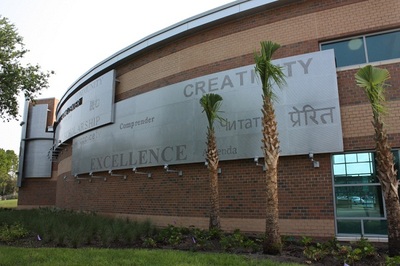On a warm and sunny Sunday afternoon over 60 educational professionals from all over Central Florida gathered in the Morgridge International Reading Center at University of Central Florida to hear from Dr. Pedro Noguera, educational researcher and advocate. Dr. Noguera opened his talk by reviewing the broad and narrow approach to education reform.

According to Dr. Noguera, narrow approaches include:
- Using pressure to foster accountability
- Focusing exclusively on achievement
- Using test scores to rank students and schools
- Scripted curriculum
- Principles accountable for schools that fail
- Treating parents as consumers
- Punitive approaches to discipline
- Competition among schools
His contention is these narrow “dog eat dog” approaches are not only shortsighted, but they foster a sense of paranoia and mistrust among students, teachers, parents, and administrators. He acknowledged these efforts were initially developed to improve education, however he asserts “they stop reproducing in both equity and quality.”
Moreover, Dr. Noguera, outlined broad approaches which include:
- A focus on the learning conditions for students such as using assessment to diagnose learning capacity and develop learning plans
- Teacher skills couched in empathy
- A student’s well-being and health
- Parents as partners in education
- Promotion of cooperation and networking among schools
Through a combination of both along with “networked” improvements, he believes schools can become a place where all students achieve. While much of his speech focused on K-12 there were definitive implications for higher education. Dr. Noguera points out, “every stage impacts, the next stage ”. He closed his talk with a prescpriptive five point plan for enriching higher education:
- First EQUALIZE OPPORTUNITY by making sure all students regardless of zip code have access to a high quality education from preschool all the way through college. In this scenario, access and accountability is evenly distributed and as such, there would be no need for access programs, remedial education, or tiered admissions because all students have an equal opportunity for success.
- Second REINVIGORATE PUBLIC SUPPORT FOR HIGHER EDUCATION through robust storytelling. According to Noguera, “too often educators focus on the wrong things”. For example, an article about a new grant is nice, but most parents, politicians, and students want to see how students in their state will find success in the classroom and beyond.
- Third INVEST LOCALLY, in doing so colleges and universities can impact the students who live closest to their campus , This is a way for colleges and universities to become partners in urban success and renewal. He warned that casting aside this obligation creates an adversarial relationship that can harm the mission and focus of the institution in the long run.
- The fourth improvement comes in the form of an acknowledgement that resources are finite and that the economics of education have become increasingly a system of UNPREDICTABLE FINANCING where decisions are influenced by limited funds
- Finally, educators need to admit that much of the external frustration with education is warranted because we have failed to respond to the local needs
The problems outlined by Dr. Noguera are the very ones that the members of the Florida Consortium are working to solve. Through a commitment to student success our member institutions have raised graduation rates by over 10 points since 2014 and many of the largest gains have been with students form traditionally underrepresented populations. Also noteworthy:
- Florida International University reestablished its office of Talent Development and partners with local employers
- University of Central Florida is building a campus to serve the education and employability needs in the Orlando metro area
- University of South Florida launched the FUSE program with a number of state colleges to provide direct access to higher education
These are just a few examples, however the Florida Consortium is focussed on helping educators and administrators share best practices and ideas to amplify success. Talent is everywhere. We can scale impact and contribute to the state through collaborative networks with state colleges, K-12 districts, employers, policy makers, students, and parents. Through strategic collaboration and partnerships our individual and collective missions will be met sooner.

